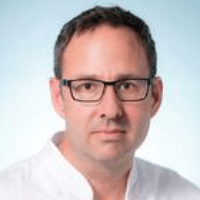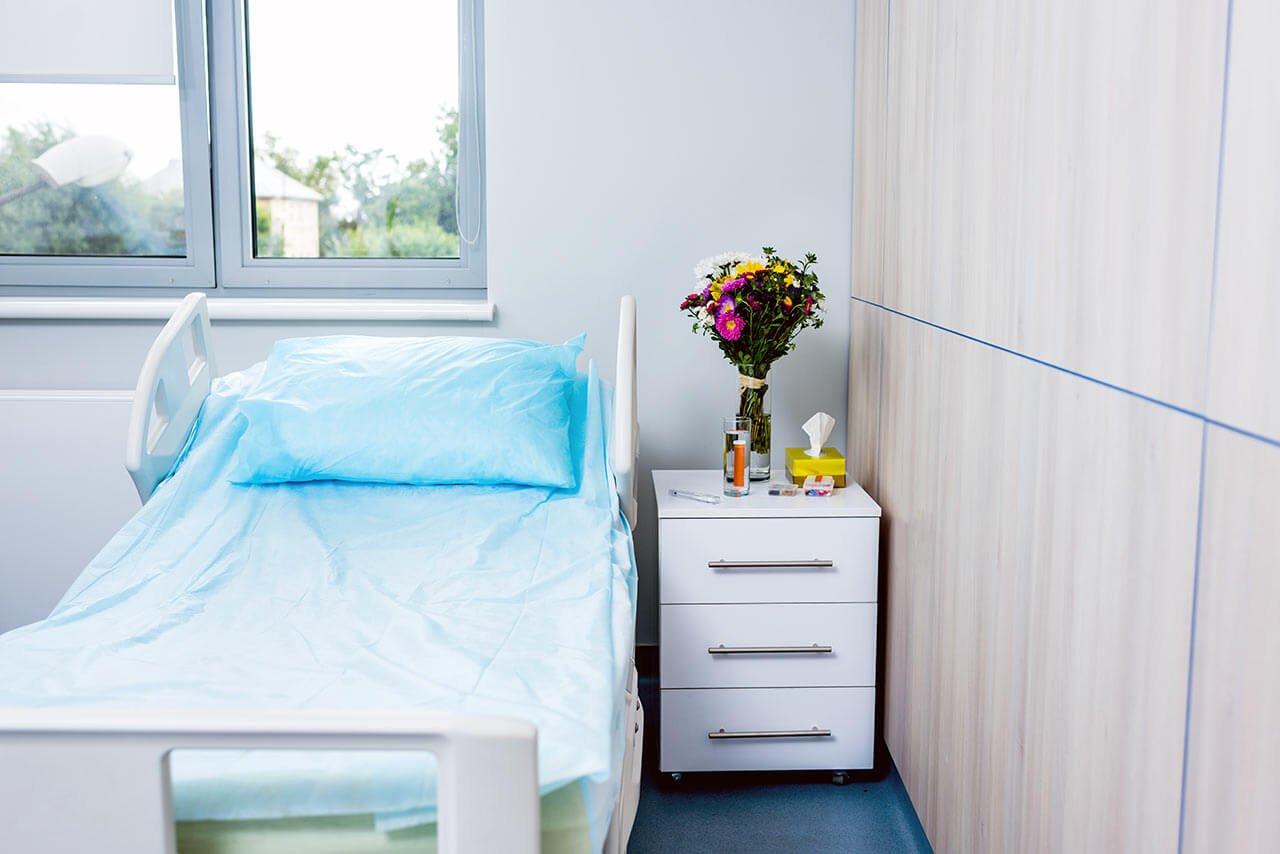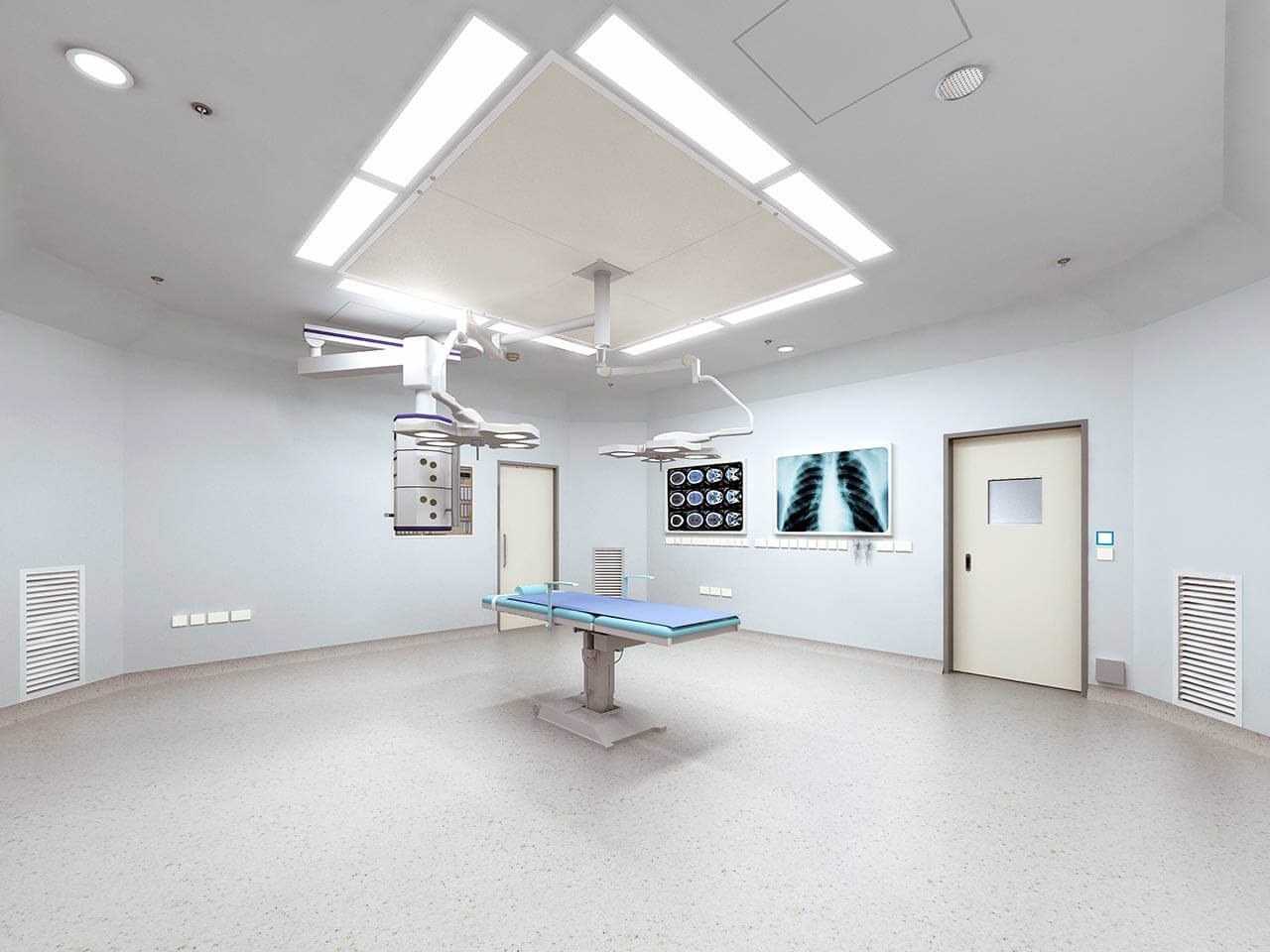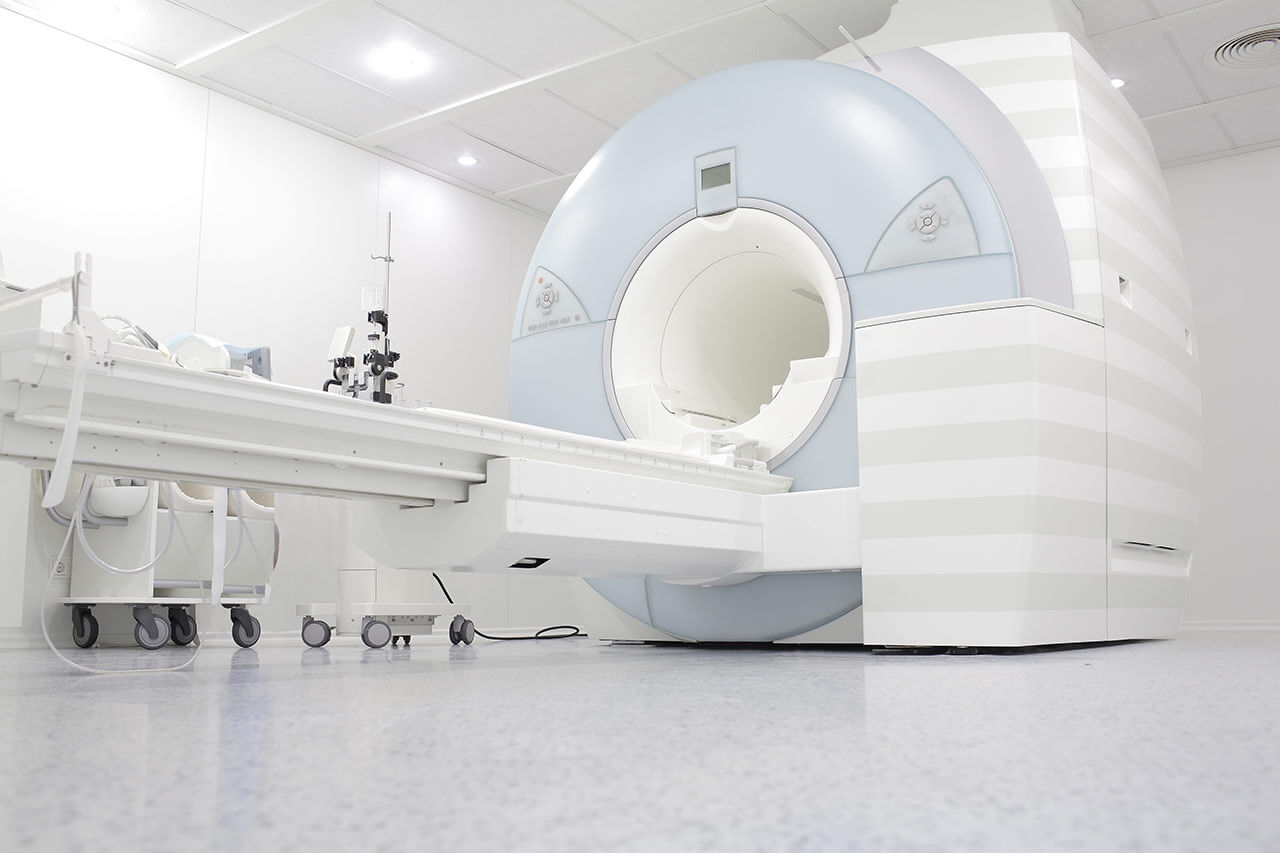
The program includes:
- Initial presentation in the clinic
- clinical history taking
- physical examination
- review of medical records
- laboratory tests:
- complete blood count
- general urine analysis
- biochemical analysis of blood
- indicators of inflammation
- indicators blood coagulation
- x-ray examination
- CT/MRI scan
- preoperative care
- minimally invasive periacetabular osteotomy
- symptomatic treatment
- control examinations
- physiotherapeutic procedures
- orthopedic appliances
- the cost of essential medicines and materials
- nursing services
- full hospital accommodation
- explanation of future recommendations
Required documents
- Medical records
- X-ray examination, MRI/CT scan (if available)
Service
You may also book:
 BookingHealth Price from:
BookingHealth Price from:
About the department
The Department of Traumatology, Orthopedics and Reconstructive Surgery at the Hospital Neuperlach Munich offers the full range of conservative and surgical treatments for patients with musculoskeletal injuries and diseases of any severity. The department specializes in the treatment of bone fractures, including complex pelvic and spinal fractures, treatment of facet arthrosis, hip and knee replacement surgery, arthroscopic interventions for pathological lesions of the shoulder and menisci, as well as in the treatment of hand diseases and injuries, correction of congenital and acquired foot deformities. The department's medical team has state-of-the-art imaging equipment, with the help of which the doctors can accurately determine the nature of pathological changes in the musculoskeletal system and select the most effective treatment in accordance with the individual needs of the patient. Should surgical treatment be required, the preference will be given to arthroscopic and laparoscopic surgical techniques, since after such operations the patient can quickly restore mobility and return to his usual lifestyle. The department's doctors work in accordance with the recommendations of the German Society for Orthopaedics and Trauma Surgery. More than 1,700 patients undergo treatment in the medical facility every year. The Chief Physician of the department is Dr. med. Matthias Jacob.
The department is a certified Trauma Center (certificate of the German Trauma Society), and therefore it offers its patients highly effective treatment of both simple and very severe injuries, multiple bone fractures, soft tissue injuries, etc. The trauma surgeons admit patients 24-hours a day. A great advantage of the department is the availability of a helipad for transporting patients in critical condition. The department provides conservative and surgical treatment of musculoskeletal injuries. Each clinical case is considered individually, after which the patient will be provided with optimal treatment. Conservative treatment involves the use of modern plaster casts and special splints. If surgery is required, the doctors resort to minimally invasive interventions. For example, to treat complex joint fractures, the doctors perform arthroscopic interventions using special instruments (an arthroscope) and a miniature camera with a light source. To perform such surgical procedures, the surgeon makes only one small incision of a few millimeters in size. The patients with hip fractures undergo minimally invasive surgery to implant the plates in order to fix damaged bones. Laparoscopic interventions exclude severe trauma to healthy tissues and allow the patient to restore mobility after surgery in the shortest possible time. In addition, the department's doctors have successful clinical experience in the treatment of geriatric injuries and fractures in the elderly. The exceptional professionalism of the department's trauma surgeons allows them to perform effective surgery, after which an elderly person can fully restore mobility.
An integral part of work of the department's medical team is the treatment of back pain, spinal fractures and osteoporotic fractures in elderly patients. The therapeutic options include both conservative and surgical methods. Prior to spinal surgery, the patient undergoes comprehensive imaging diagnostics (X-ray, CT and MRI). Whenever required, neurosurgeons are involved in the therapeutic process. With satisfactory clinical indications, the specialists perform minimally invasive spinal surgery to avoid damage to the surrounding soft tissues, nerves, muscles and blood vessels. One of the main focuses of the department's orthopedists and traumatologists is the treatment of vertebral fractures. If diagnostic tests show that ligaments and muscles provide stability to the fractured vertebral body, then the patient does not require a surgical correction. In such cases, the doctors use pain therapy and physiotherapy. If the stability of the vertebral body is impaired, then doctors decide to perform a surgical intervention, since the lack of proper treatment can lead to impaired control of the functions of the bladder or intestines, sensory disorders, movement disorders and other irreversible consequences. In this case, the most common surgery is spondylodesis – immobilization of adjacent vertebrae due to their fusion. In some cases, it is necessary to completely replace the vertebral body using a special titanium prosthesis. The first-line treatment for patients with back pain is physiotherapy and intake of painkillers. If these therapeutic measures do not lead to the desired result, the orthopedists perform blocks by injecting painkillers.
The department's service range is complemented by arthroscopic joint surgery, as well as knee and hip replacement surgery. The department has high-tech medical equipment for sparing and highly effective joint surgery. At the initial stages of arthrosis, the department's specialists use only drug treatment and physiotherapy. In case of severe knee and hip arthrosis, the only effective treatment option is the replacement of the affected joint. Depending on the stage of the pathological process, the patient may require either partial or total joint replacement surgery. The specialists use in their clinical practice only high-quality endoprostheses with a long service life, which are selected for each patient individually, taking into account his anatomical features. The department also specializes in revision surgery to replace previously implanted endoprostheses. When performing joint replacement surgery, the doctors mostly use minimally invasive techniques.
The department's key clinical focuses include:
- Conservative and surgical treatment of the musculoskeletal injuries, including especially severe ones, multiple bone fractures and soft tissue injuries
- Conservative and surgical treatment of back pain, spinal fractures and osteoporotic fractures
- Arthroscopic surgery (for example, for meniscal injuries, rotator cuff tear, etc.)
- Knee and hip replacement surgery, including revision surgery to replace previously implanted prostheses
- Conservative and surgical treatment of hand diseases
- Hand fractures and injuries
- Compression syndromes (for example, carpal tunnel syndrome and cubital tunnel syndrome)
- Hand and finger arthrosis
- Rheumatic hand lesions
- Dupuytren's contracture
- Trigger fingers
- Surgical correction of congenital and acquired foot deformities
- Other medical services
About hospital
The Hospital Neuperlach Munich provides modern medical services of the highest quality. The medical center is an Academic Hospital of the Ludwig Maximilian University of Munich, and therefore it can offer its patients innovative diagnostic and therapeutic methods available only in the best German hospitals. The medical complex opened its doors to patients on September 12, 1972 and to this day holds a leading position in the country's medical arena. The medical facility has 500 beds. The highly qualified doctors of the hospital annually admit over 59,000 patients for both diagnostics and treatment, including patients from foreign countries.
The hospital is distinguished by its rich experience and high success rates in conservative and surgical treatment of diseases of the gastrointestinal tract, liver, metabolic disorders, cancers and blood diseases, heart diseases, as well as vascular pathologies. The hospital operates a highly specialized Colon Cancer Center certified by the German Cancer Society. The center is one of the largest medical facilities of this kind in Germany and has advanced therapeutic options for the treatment of life-threatening colon disease. In addition, the hospital provides high-quality obstetric services – more than 1,000 babies are born here annually.
For outstanding achievements in various medical specialties, the hospital was awarded with many prestigious certificates, including the IQM certificate, the DIN EN ISO 9001:2008 certificate, the DGAV certificate as a Competence Center for Liver and Pancreatic Surgery, the DDG certificate of the German Diabetes Society and others. The above mentioned certificates testify to the excellent quality of medical service.
Special attention should be paid to the medical staff of the hospital who have extensive clinical experience and do everything possible to achieve a complete recovery of the patient. During the treatment, both doctors and nursing staff surround the patient with maximum care, support him in every possible way and show a humane attitude. The work of physicians is based on an individual approach to each patient and his clinical case.
Photo: (с) depositphotos
Accommodation in hospital
Patients rooms
The patients of the Hospital Neuperlach Munich live in single, double and triple rooms with all the amenities for a comfortable stay. The patient rooms have a modern and cozy design. Each patient room has an ensuite bathroom with shower and toilet. The furnishings of a standard patient room include an automatically adjustable bed, a bedside table, a wardrobe, a modern multimedia system with a TV and telephone, a table and chairs for receiving visitors. Wi-Fi is also available in the patient rooms.
The patients can also stay in the enhanced comfort patient rooms, which additionally include a safe, a minifridge and upholstered furniture.
The hospital also has a library with a large assortment of books, magazines, CDs and DVDs. In addition, there is a cozy cafe on the territory of the hospital, which offers its guests a variety of delicious snacks, pastries, cakes, ice cream and various drinks. The cafe also has a takeout service.
Meals and Menus
The patient and his accompanying person are offered tasty and healthy three meals a day. All dishes are cooked only from fresh and high quality ingredients. Breakfast and dinner are served buffet style, and the patient can choose the dishes that he likes on his own. For lunch the patient has a choice of three menus, one of which is vegetarian.
If you are on a specific diet for some reason, you will be offered an individual menu. Please inform the medical staff about your dietary preferences prior to the treatment.
Further details
Standard rooms include:
Religion
The religious services are available upon request.
Accompanying person
During the inpatient program, the accompanying person can live with the patient in a patient room or a hotel of his choice. Our managers will help you choose the most suitable option.
Hotel
During the outpatient program, the patient can stay at the hotel of his choice. Our managers will help you choose the most suitable option.





